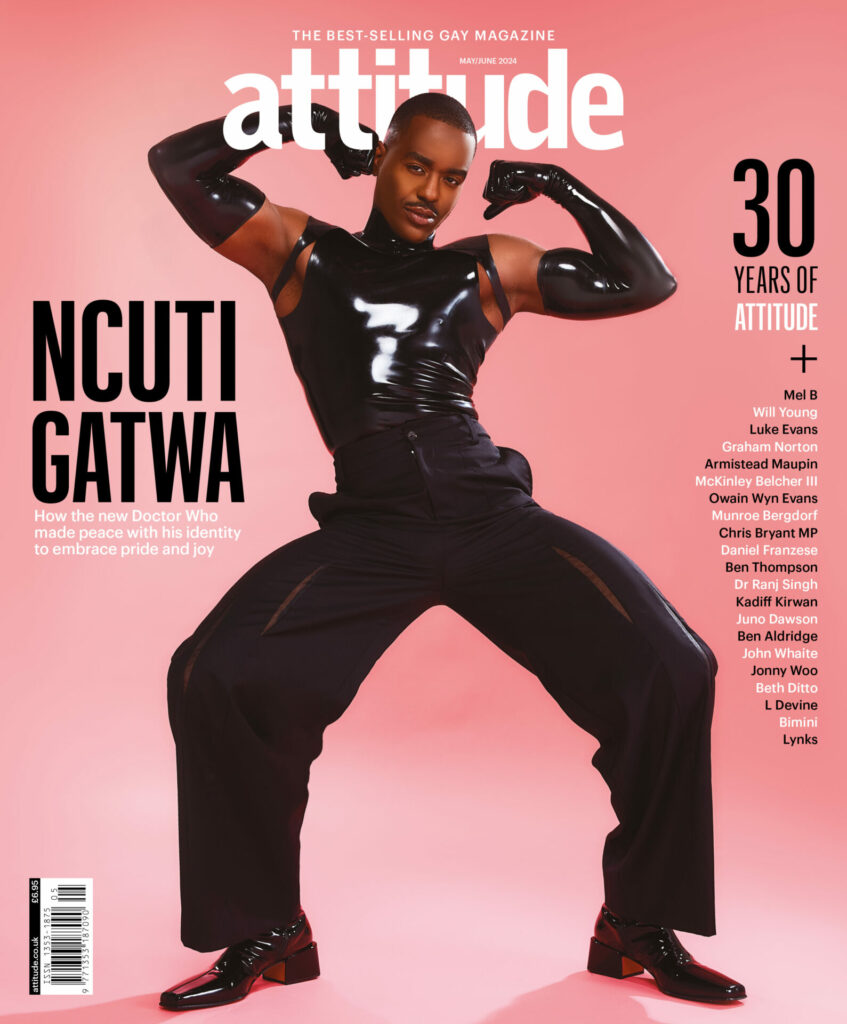Hospice UK report pushing for equality in LGBTQ+ end-of-life care
Exclusive: "We want to transform the experience trans and gender-diverse people have at the end of their lives", Hospice UK says, following a donation from the Attitude Magazine Foundation
By Dale Fox

Championing equality for LGBTQ+ lives has become a shared mission for many, yet the disparities and discrimination faced in end-of-life care often remain undiscussed. Hospice UK’s recent report, ‘I Just Want to Be Me’, published in 2023, however, shines a much-needed spotlight on these issues and is already driving essential change.
The report [PDF] delves deeply into the experiences of trans and gender-diverse individuals in palliative and end-of-life care settings, uncovering challenges including deadnaming and familial rejection. There are also accounts of LGBTQ+ people being misgendered or having their identities disrespected by healthcare providers. Fear of discrimination has left some feeling unable to openly express their gender, while others have faced rejection from family and loved ones at a time when compassion and acceptance are most crucial.
The Attitude Magazine Foundation (AMF) has played a role in amplifying the impact of the report by providing a donation to Hospice UK. Through this support, the report’s recommendations are gaining broader visibility, with implementation in hospices and care settings across the UK.
Providing an inclusive environment
Recommendations from the report include not assuming that someone’s next of kin will necessarily be a blood relation or official spouse. It also advises using neutral language and pronouns like ‘partner’ and ‘they/them’ until one is certain of how someone identifies. Additionally, it suggests only asking about someone’s gender or transition when pertinent to the healthcare being provided, and avoiding assumptions about a person’s clothing preferences. The report also recommends visibly displaying commitment to providing a trans and gender-diverse inclusive service, such as wearing a trans-inclusive Pride badge.
In response to the report, developed in collaboration with the Gender Identity Research and Education Society (GIRES), hospices nationwide have demonstrated a commitment to implementing its recommendations. Many have initiated inclusive initiatives and training programmes for professionals working in death, dying, and bereavement spaces. Guided by LGBTQ+ charity leaders, these are aimed at creating environments where trans and gender-diverse individuals feel welcomed, supported, and respected during their end-of-life journey.
“We want to transform the experience trans and gender-diverse people have at the end of their lives” – Hospice UK
“The AMF’s support for this work has been invaluable, helping us to share the report with as many people as possible and roll out its recommendations,” says Olivia Warnes, senior policy and public affairs officer at Hospice UK. “We want to transform the experience trans and gender-diverse people have at the end of their lives, and this is just the start.”
However, despite these efforts, Warnes acknowledges there is still much work to be done to ensure that all LGBTQ+ individuals receive end-of-life care that is compassionate, inclusive, and affirming of their identities.
“We’re working with hospices and LGBTQ+ charity leaders on resources which will help hospices ensure their policies are inclusive of trans and gender-diverse staff, volunteers, visitors, and patients,” says Warnes.

This feature was taken from issue 358 of Attitude magazine, available to order online here and alongside 15 years of back issues on the free Attitude app.
